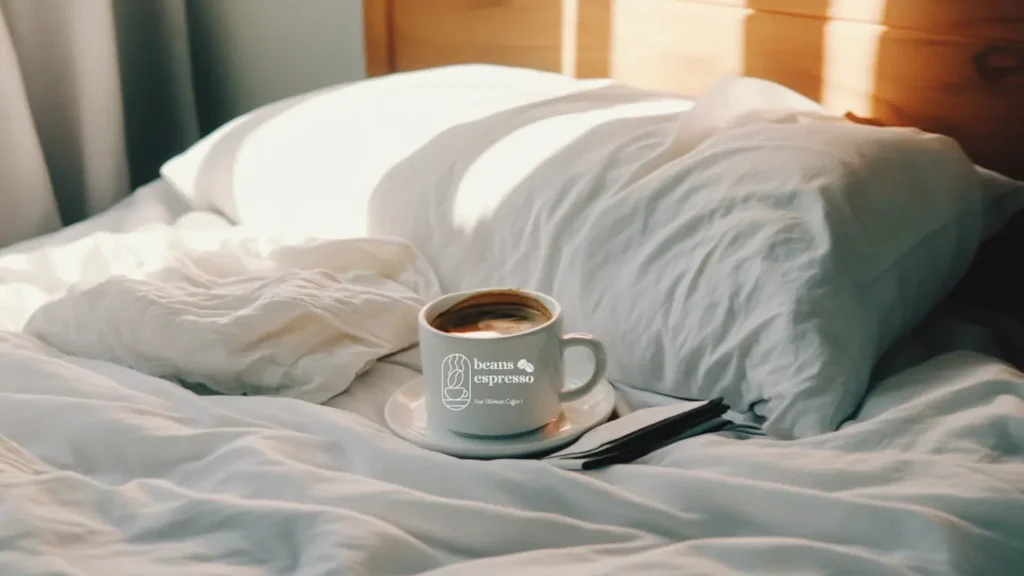Imagine this: you savor a steaming cup of coffee in the late afternoon to push through a busy day, only to find yourself tossing and turning at bedtime. Sound familiar? Coffee is the world’s most popular pick-me-up, but its effects on sleep quality often get overlooked. In this blog, we’ll uncover how Coffee Impacts Your Sleep, the science behind caffeine, and practical strategies to enjoy your favorite brew without compromising your rest. read more to see How Coffee Impacts Your Sleep
What Happens When You Drink Coffee?
When you sip coffee, caffeine, a natural stimulant, enters your bloodstream and heads straight for your brain. Here’s what happens next:
- Blocks Adenosine: Adenosine is a neurotransmitter responsible for promoting sleep. Caffeine temporarily blocks its receptors, keeping you awake and alert.
- Stimulates the Nervous System: Caffeine enhances the release of adrenaline, increasing energy and focus.
- Long-Lasting Effects: Caffeine’s half-life is approximately 5-6 hours, meaning half of the caffeine remains in your system hours after consumption.
For example, a 3 PM coffee might still impact your sleep at 10 PM, depending on your sensitivity. Learn more about caffeine’s interaction with sleep cycles in this Sleep Foundation guide.
How Coffee Impacts Your Sleep Patterns
Caffeine’s stimulating effects are a double-edged sword. While it boosts alertness during the day, it can interfere with:
- Falling Asleep
Caffeine increases sleep latency, or the time it takes to fall asleep, especially when consumed later in the day. - Sleep Quality
It reduces the amount of deep sleep and REM sleep, the restorative stages essential for memory and cognitive function. - Next-Day Effects
Poor sleep caused by late-day caffeine consumption often leads to daytime drowsiness, creating a vicious cycle of increased coffee reliance.
According to LiveScience, even moderate amounts of coffee can disrupt your internal clock if consumed too close to bedtime.
Why Are Some People More Sensitive to Coffee?
Have you ever noticed that some people can drink espresso before bed without a problem, while others can’t sleep after an afternoon latte? The answer lies in:
- Genetics
Your genetic makeup determines how quickly your body metabolizes caffeine, particularly through the CYP1A2 enzyme. - Age
Older adults often metabolize caffeine slower, increasing its effects on sleep. - Lifestyle Factors
Smoking, medications, and even stress can influence how your body processes caffeine.
Understanding your body’s relationship with coffee can help you adjust your habits for better sleep.
Signs Coffee Is Impacting Your Sleep
If coffee is interfering with your rest, you might notice these signs:
- Difficulty falling asleep at night.
- Waking up feeling groggy or unrefreshed.
- Increased reliance on caffeine to combat daytime fatigue.
If these symptoms resonate, it’s time to reevaluate your caffeine habits.
How to Reduce Coffee Impacts Your Sleep
Here are practical strategies to enjoy coffee without compromising your sleep:
- Time Your Coffee Wisely
- Avoid drinking coffee after 2 PM.
- Morning coffee provides the best energy boost while minimizing sleep interference.
- Opt for Decaf in the Afternoon
Decaffeinated coffee still offers the rich flavor of coffee with minimal caffeine. Read more about decaf options in our post on Decaf Coffee Myths vs. Facts. - Limit Your Intake
- Stick to 3-4 cups per day (about 400 mg of caffeine).
- Monitor portion sizes: espresso and specialty drinks often contain more caffeine than expected.
- Create a Sleep-Friendly Evening Routine
- Replace evening coffee with calming herbal teas like chamomile or peppermint.
- Wind down with activities like reading or meditation to signal your body it’s time for rest.
Alternatives to Coffee for Sustained Energy
If you’re looking for a caffeine-free way to stay energized, consider these options:
- Herbal Teas: Chamomile and rooibos promote relaxation without caffeine.
- Chicory Coffee: This caffeine-free alternative mimics the taste of coffee.
- Hydration and Nutrition: Staying hydrated and eating balanced meals can naturally boost energy.
Debunking Myths About Coffee and Sleep
Let’s clear up some common misconceptions:
- “Coffee Doesn’t Affect Me”
Caffeine’s effects can be subtle and long-lasting. Even if you fall asleep easily, it may reduce your sleep quality. - “Decaf Coffee Is Caffeine-Free”
Decaf contains small amounts of caffeine (about 2-5 mg per cup), which can still affect sensitive individuals. - “Drinking Coffee Late Doesn’t Matter”
Studies show that caffeine consumed even six hours before bed can disrupt sleep cycles.
FAQs About Coffee and Sleep, How Coffee Impacts Your Sleep
1. How long before bed should I stop drinking coffee?
Experts recommend avoiding caffeine at least 6 hours before bedtime.
2. Is decaffeinated coffee better for sleep?
Yes, decaf contains minimal caffeine and is a better choice for the evening.
3. Can you build a tolerance to caffeine?
Yes, regular consumption can reduce caffeine’s stimulating effects, but it may still impact sleep.
4. Does coffee affect everyone’s sleep the same way?
No, genetic factors and lifestyle differences mean caffeine affects individuals differently.
Conclusion: Striking a Balance Between Coffee and Sleep
Coffee can be both your best friend and your worst enemy when it comes to energy and sleep. By understanding how it affects your body and making mindful adjustments, you can enjoy your favorite brew without sacrificing quality rest.
Are you a coffee lover who struggles with sleep? How Coffee Impacts Your Sleep then? Share your experiences and tips in the comments below—we’d love to hear from you!

